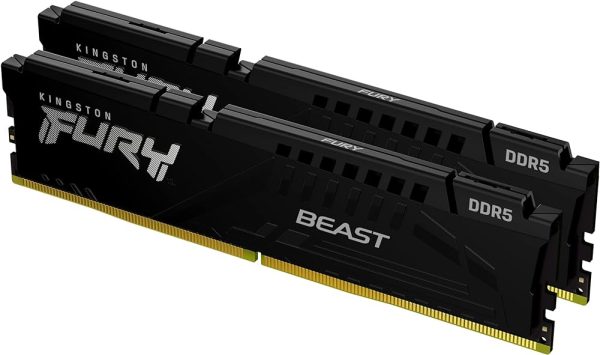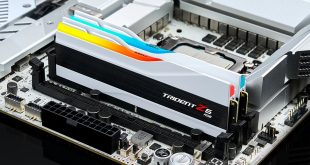Kingston has returned to Computex with a race-themed showcase. By infusing its product lines with elements reminiscent of the race track and pit stop, Kingston unveiled some of its upcoming products, including Fury Reneage DDR5 memory RGB Limited Edition, Fury Impact DDR5 CAMM 2 modules, the red XS1000 external SSD and a PCIe 4.0 NVMe SSD codenamed Kenting Bay.
The Kingston Fury Renegade DDR5 RGB Limited Edition memory features a striking red and black heat spreader design, drawing inspiration from race car aesthetics. As the name suggests, it has RGB LEDs that can be customised with different effects (about 19). Moreover, this memory is Intel XMP 3.0-certified and operates at speeds of 8000MT/s. The memory kits are available with 48GB (2x 24GB).
Complementing the portfolio is the Kingston Fury Impact DDR5 (CAMM2), a dual-channel memory module that combines a compact form factor with increased capacity and speed. Designed for notebook, gaming laptop, and mobile workstation users, it offers 32GB capacities, delivering more capacity performance and lower power consumption than your average SODIMM modules.
Further expanding its lineup, Kingston introduced the red model of the XS1000 External SSD. With a USB 3.2 Gen 2 interface, the SSD offers write speeds up to 1,050MB/s and read speeds up to 1,000MB/s. This external SSD is offered in capacities of 1TB and 2TB. Lastly, Kingston teased its upcoming Kenting Bay (codename) PCIe 4.0 NVMe M.2 SSD, rated for sequential read/write speeds of up to 6,000/5,000MB/s and capacities ranging from 500GB to 4TB.
Discuss on our Facebook page, HERE.
KitGuru says: What do you make of Kingston's Computex line-up?
 KitGuru KitGuru.net – Tech News | Hardware News | Hardware Reviews | IOS | Mobile | Gaming | Graphics Cards
KitGuru KitGuru.net – Tech News | Hardware News | Hardware Reviews | IOS | Mobile | Gaming | Graphics Cards



